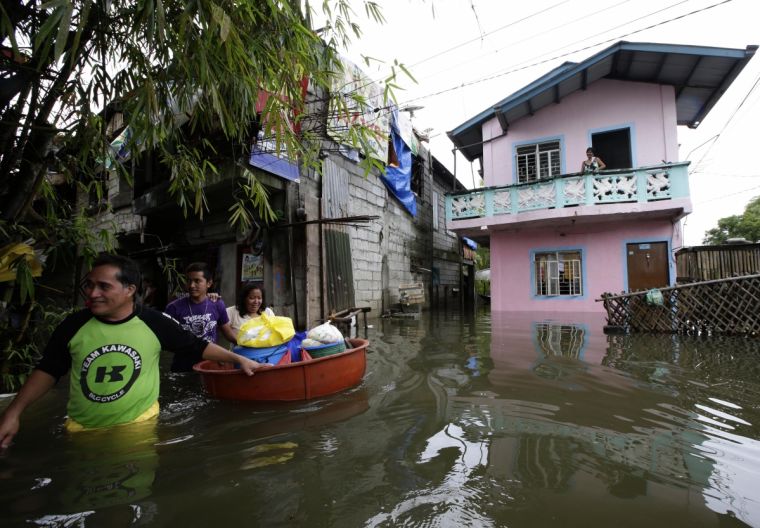Rebuilding livelihoods in flood-hit Philippines a 'top priority' for Christian Aid

Christian Aid says thousands in the Philippines have lost their livelihoods after floods washed away £7 million-worth of crops.
The aid agency has released emergency funds to partners in Philippines are distributing emergency food and other basic items among families affected by the severe flooding.
Five days of incessant monsoon rains were made worse by Typhoons Utor and Trami, triggering flooding across 247 municipalities. Entire villages have been deluged and at the height of the bad weather, up to 70 per cent of capital Metro Manila was submerged.
At least 38 people have been killed and over 3,000 houses destroyed. Many people have been left without any income or food after crops of vegetables and corn were washed away.
An estimated 3.4 million people have been affected across the 247 municipalities.
In addition to food, Christian Aid partners are distributing sleeping mats, blankets and buckets, as well as cash grants that can be used to buy medicine or materials for shelter.
Some families are starting to return to their homes, but Christian Aid said many areas were still under water and people were unable to work.
Although the full impact is still not known, Christian Aid is focusing its attention on the needs of families that have lost livelihoods, particularly in the high-risk Pacific-facing province of Aurora. It said this would be a "top priority" in the coming months.
Alwynn Javier, Christian Aid's Resilience Officer for Southeast Asia, said: "Many communities where Christian Aid and partner organisations have carried out disaster risk reduction work in previous years have demonstrated the benefits of being prepared and resilient.
"Community-based groups such as Buklod TAO in San Mateo, Damayan in Taytay, and the Barangay Emergency Response Team (BERT) in Binan all played important roles in early warning, evacuation and relief efforts in their own communities.
"They proved that, if given the opportunity and knowledge, community members are best positioned to respond or get government resources for their immediate needs.
"Aside from urgent relief needs, people are in dire need of support to restore their livelihoods. We need to provide humanitarian assistance that also addresses lost livelihood opportunities, food security and making communities more resilient to disasters and climate change."











